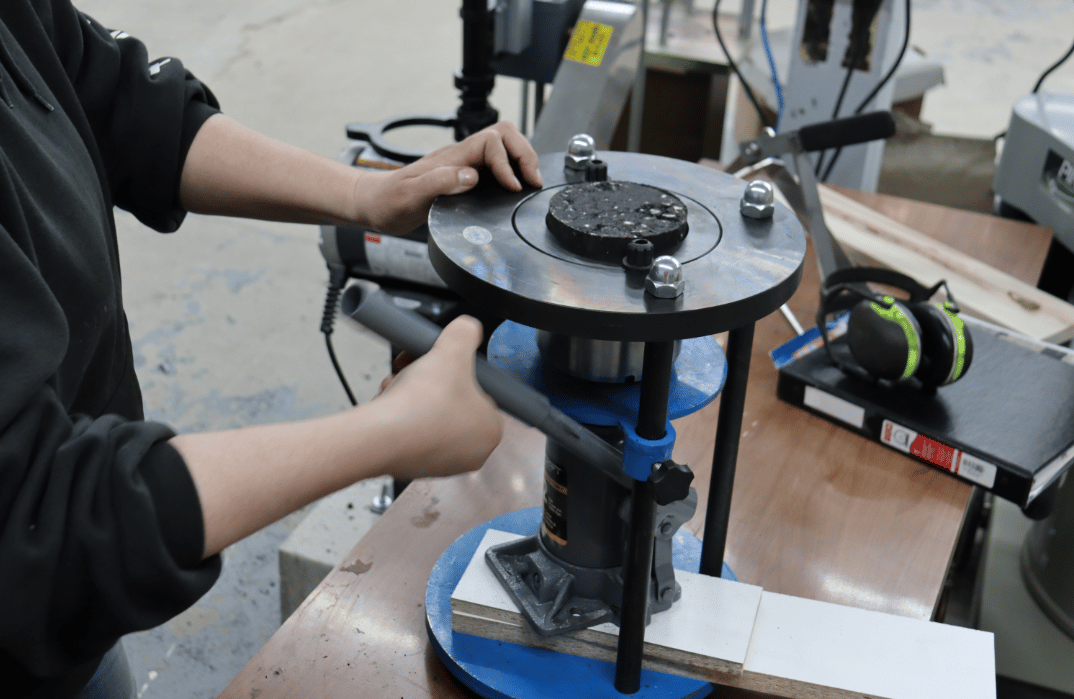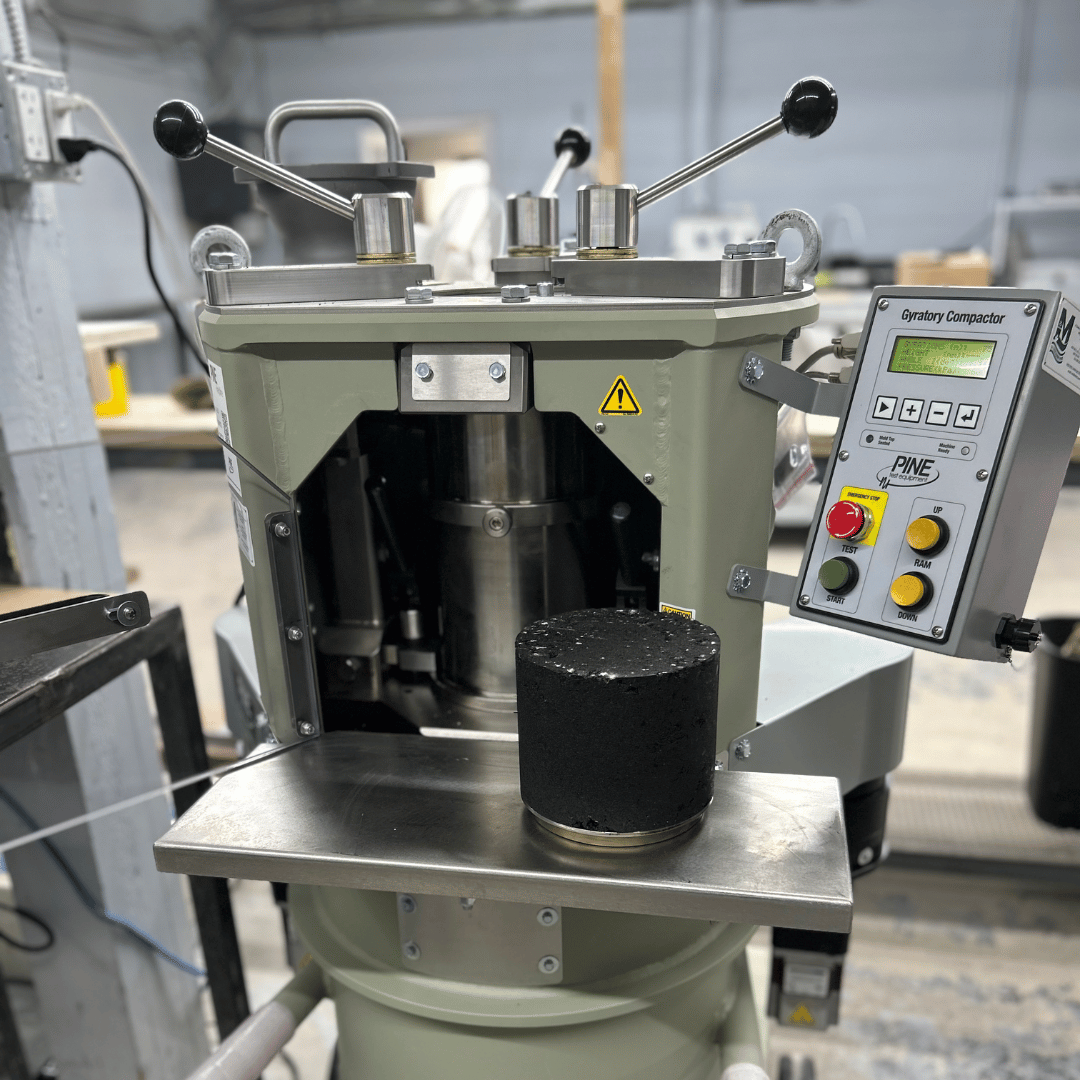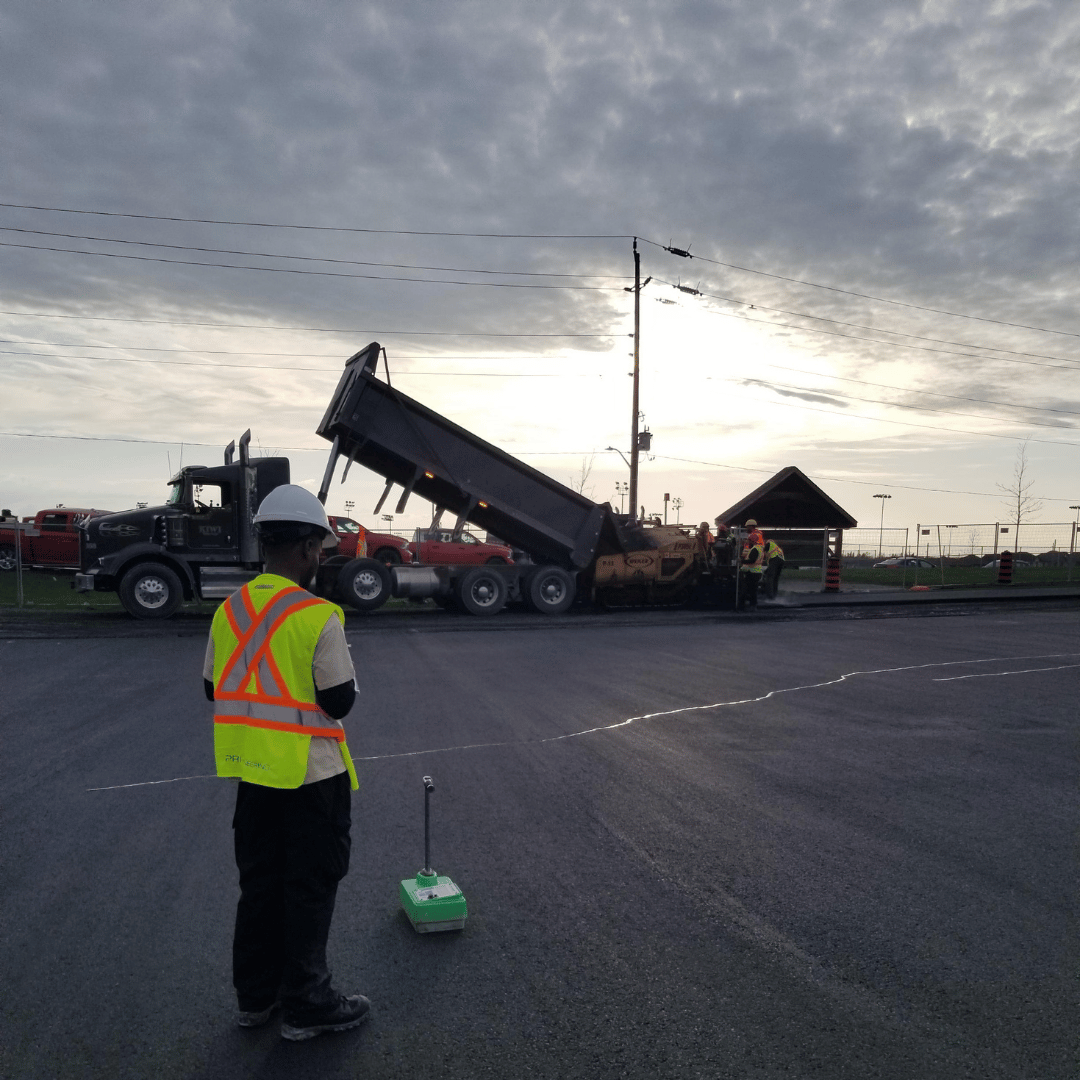Understanding Asphalt Mix Compliance: Meeting MTO and Municipal Standards
In Ontario’s roadbuilding industry, asphalt mix compliance is a critical quality assurance step that ensures the pavement you're placing today will perform for decades to come. Whether you're working under a Ministry of Transportation (MTO) contract or a municipal specification, demonstrating that your asphalt mix meets accepted standards is not optional—it's essential.
At the core of this compliance process are two laboratory testing protocols: the Marshall Method and the Superpave Method. Evaluating asphalt mix quality, ensures performance quality, and reduces the risk of early pavement failure.
Why Asphalt Mix Testing Matters
Asphalt may look uniform on the surface, but its internal structure and composition determine its long-term success. Compliance testing ensures that:
The asphalt mix has the right balance of strength, flexibility, and durability
The design meets local traffic loading and environmental conditions
Contractual requirements for public infrastructure projects are met
You avoid premature failures like rutting, cracking, and raveling
Testing provides quantitative data on your mix’s ability to handle mechanical stresses, temperature cycles, and long-term aging. In short, it verifies that the mix is not only workable—but engineered for performance.
Marshall Method Testing – Proven Quality for Municipal and Private Work
Marshall Asphalt Testing
The Marshall Method is a widely used testing approach across Ontario, particularly for municipal roads, subdivisions, and commercial developments. It is based on a series of standardized procedures to evaluate:
Stability and Flow under load
Mix compatibility
Volumetric properties, such as air void content and binder saturation
Effects of Above and Below Design Requirement
These values directly influence the durability, fatigue life, and serviceability of the pavement structure—especially under light-to-moderate traffic conditions.
Superpave Testing – Designed for Performance and Precision
Superpave Asphalt Testing
The Superpave Method (Superior Performing Asphalt Pavement) was developed through SHRP (Strategic Highway Research Program) to address modern traffic loads and extreme weather—making it the standard for MTO highways and high-volume roads.
What makes Superpave different is its performance-based approach. Rather than relying solely on volumetric properties, Superpave includes binder characterization, compaction simulation, and gradation analysis to predict how the pavement will perform over time.
What Superpave Testing Measures:
✅ Superpave allows engineers to customize mixes based on traffic levels (Equivalent Single Axle Load (ESALs)) and climatic zones, making it indispensable for projects requiring high reliability and long design life.
How These Tests Ensure Pavement Quality
Optimist Park, Lindsay Ontario
Both Marshall and Superpave methods offer critical insight into mix behavior, allowing for proactive quality control before asphalt is ever placed in the field. Here's how they contribute to long-term pavement performance:
Without this lab verification, you run the risk of placing a mix that looks fine at the plant but fails under real-world stress—leading to costly remediation, safety hazards, and client dissatisfaction.
FAQ What about the MTO Requirements?
The Ministry of Transportation of Ontario (MTO) requires the use of Superpave (Superior Performing Asphalt Pavements) mix design for all asphalt paving projects under its jurisdiction. This specification ensures that asphalt mixtures meet stringent performance criteria tailored to Ontario’s diverse climate and traffic conditions. Unlike older methods such as the Marshall mix design, Superpave incorporates a more advanced understanding of material behaviour under real-world loading and temperature extremes. It accounts for factors like traffic loading, pavement structure, and environmental conditions to deliver a more durable, rut-resistant, and crack-resistant pavement—making it the preferred standard for long-term infrastructure performance.
CCIL-Certified Asphalt Testing in Peterborough
To support our partners across Central and Eastern Ontario, PRI Engineering is proud to announce the opening of our new CCIL-Certified Asphalt Laboratory in Peterborough.
Our Facility is Fully Certified For:
Asphalt Mix Compliance – Marshall Method (Type B)
Asphalt Mix Compliance – Superpave Method (Type B)
We offer:
Accurate and timely mix verification
Field and plant sample testing
Project-specific support for MTO and municipal contracts
Fast reporting and communication
Our lab adheres to CCIL, AASHTO, ASTM, and MTO LS testing standards, giving you full confidence in compliance and quality performance.
Serving Contractors, Municipalities, and Engineering Firms
Whether you’re paving a township road or an MTO highway, we’re here to ensure your asphalt is tested, certified, and built to last.
📍 Visit our lab at:
768 The Kingsway, Peterborough, ON
📞 Reach out today to schedule a consultation or drop off samples.








